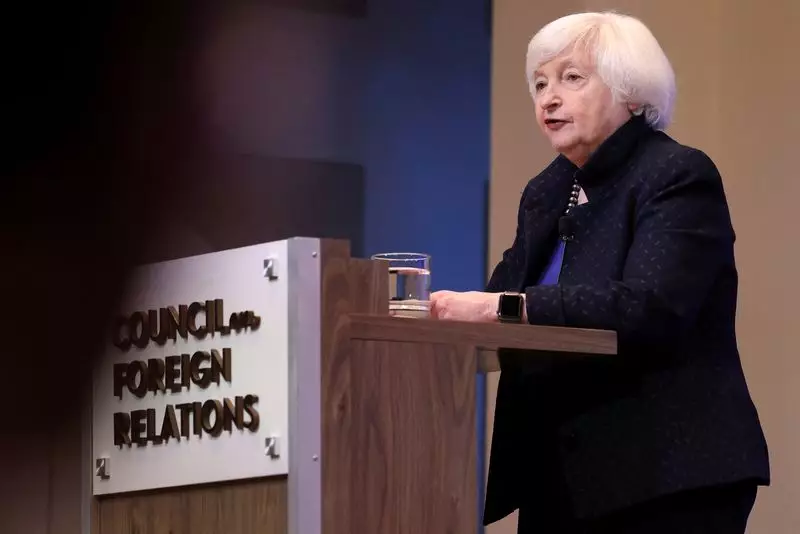As global economies become increasingly intertwined, the notion of economic isolationism poses significant risks. In a recent address, U.S. Treasury Secretary Janet Yellen articulated a formidable stance against protectionist strategies that might undermine the resilience and competitiveness of the American economy. By evaluating her insights, it becomes evident that rejecting isolationist policies in favor of strategic collaboration and openness is essential for sustaining long-term economic growth.
Yellen’s remarks center around the misguided nature of extending tariffs indiscriminately—a key element in the economic agenda of certain political figures. By advocating for substantial tariff increases on imports, particularly from nations such as China, proponents neglect the reciprocal consequences: elevated prices for American consumers and a stunted competitive edge for U.S. businesses. Such tariffs can significantly inflate costs for everyday goods, diminishing the purchasing power of American families and quelling consumer confidence.
Moreover, the imposition of sweeping tariffs does not only burden consumers but also jeopardizes thousands of American jobs. The rationale behind these tariffs is often rooted in the belief that protecting domestic industries is paramount; however, the adverse effects ripple across the entire economy. The interconnected nature of supply chains means that U.S. companies often rely on materials and components sourced from abroad. As tariffs escalate, the resultant increase in costs could compel companies to reduce operations, consequently leading to layoffs and economic malaise.
Secretary Yellen articulated a crucial point: isolationist tactics would compromise America’s ability to navigate a complex geopolitical landscape. For instance, to exert meaningful pressure on adversarial nations, such as Russia or China, it is essential to engage with allies rather than treating them merely as transactional partners. Unilateral actions weaken alliances that are invaluable for collaborative efforts in addressing global crises, such as security threats or climate change.
Trade with China, often viewed through a lens of competition and rivalry, can yield considerable benefits for American stakeholders. By fostering a balanced economic relationship with Beijing, the United States can leverage trade as a tool for mutual growth while advocating for fair practices. Marginalizing economic ties risks the erosion of potential opportunities for American businesses and may inadvertently bolster competitors in the global market.
Yellen’s endorsement of targeted tariffs—specifically on critical sectors such as electric vehicles and semiconductors—illustrates a nuanced approach. While direct protection of vital American industries is imperative, any strategic measures must be carefully crafted to avoid broad, indiscriminate penalties that may disrupt economic harmony and progress. The growing international consensus around addressing non-compliant trading practices in China signals a shift towards more collaborative policy-making.
Focus on fostering international cooperation will also compel China to reconsider its industrial policies, which have often been characterized by unfair competition and market access barriers. By uniting with allies and responding strategically, the United States can insist on a level playing field, ensuring that American firms can compete effectively on global scales.
As articulated by Secretary Yellen, the notion of retreating into isolationism is fraught with peril. The sweeping calls for high tariffs, as advocated by certain political figures, not only risk inflating consumer prices but also undermine the competitive landscape for businesses striving for growth in an increasingly globalized economy. A proactive and strategic approach towards international trade, founded on principles of fairness and collaboration, is paramount.
Facilitating economic ties, while also pushing for observance of fair competitive practices, is not merely beneficial but essential for securing the long-term interests of U.S. workers and businesses alike. Embracing interconnectedness rather than retreating into solitude promises a stronger, more resilient American economy that can thrive amidst global challenges.

